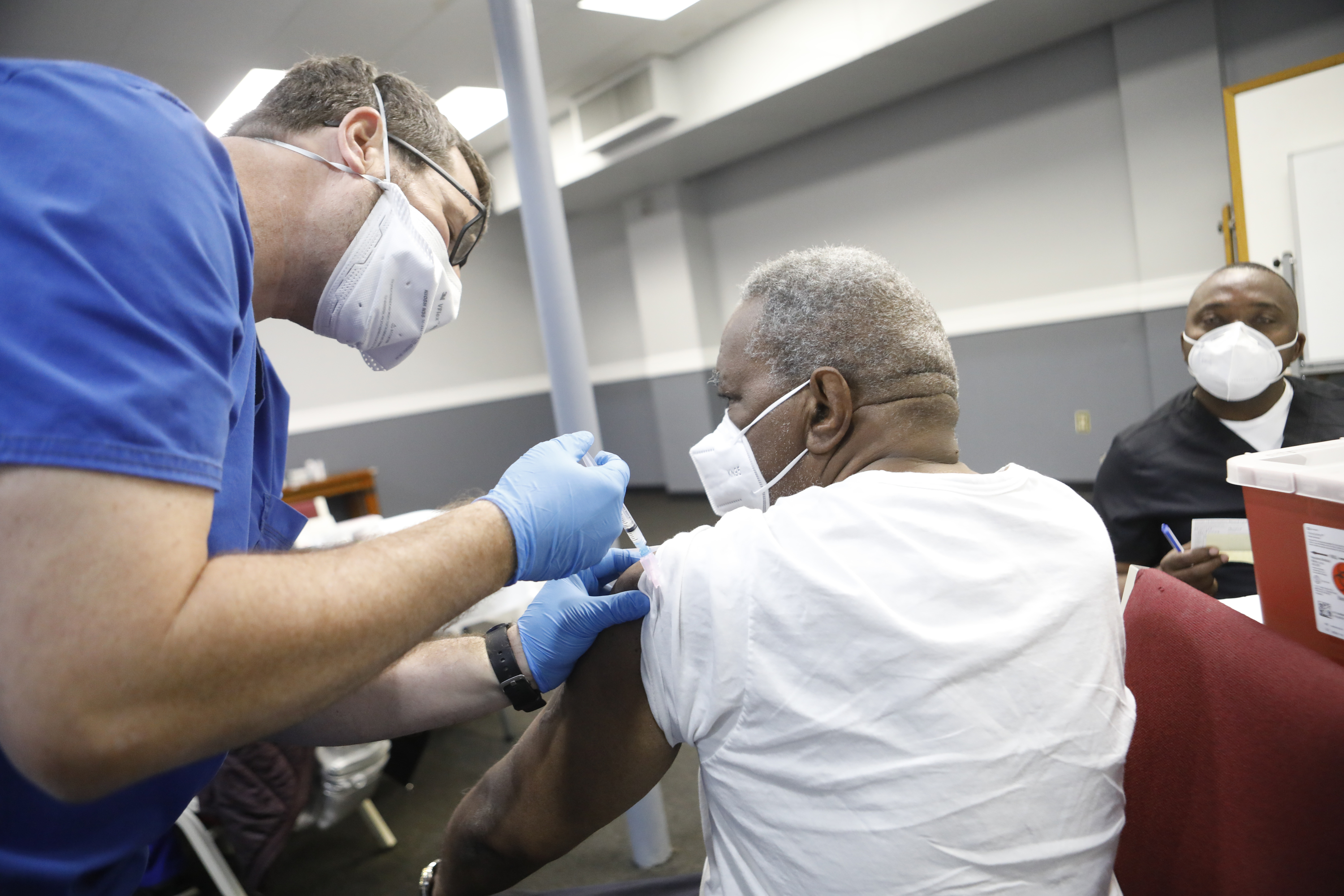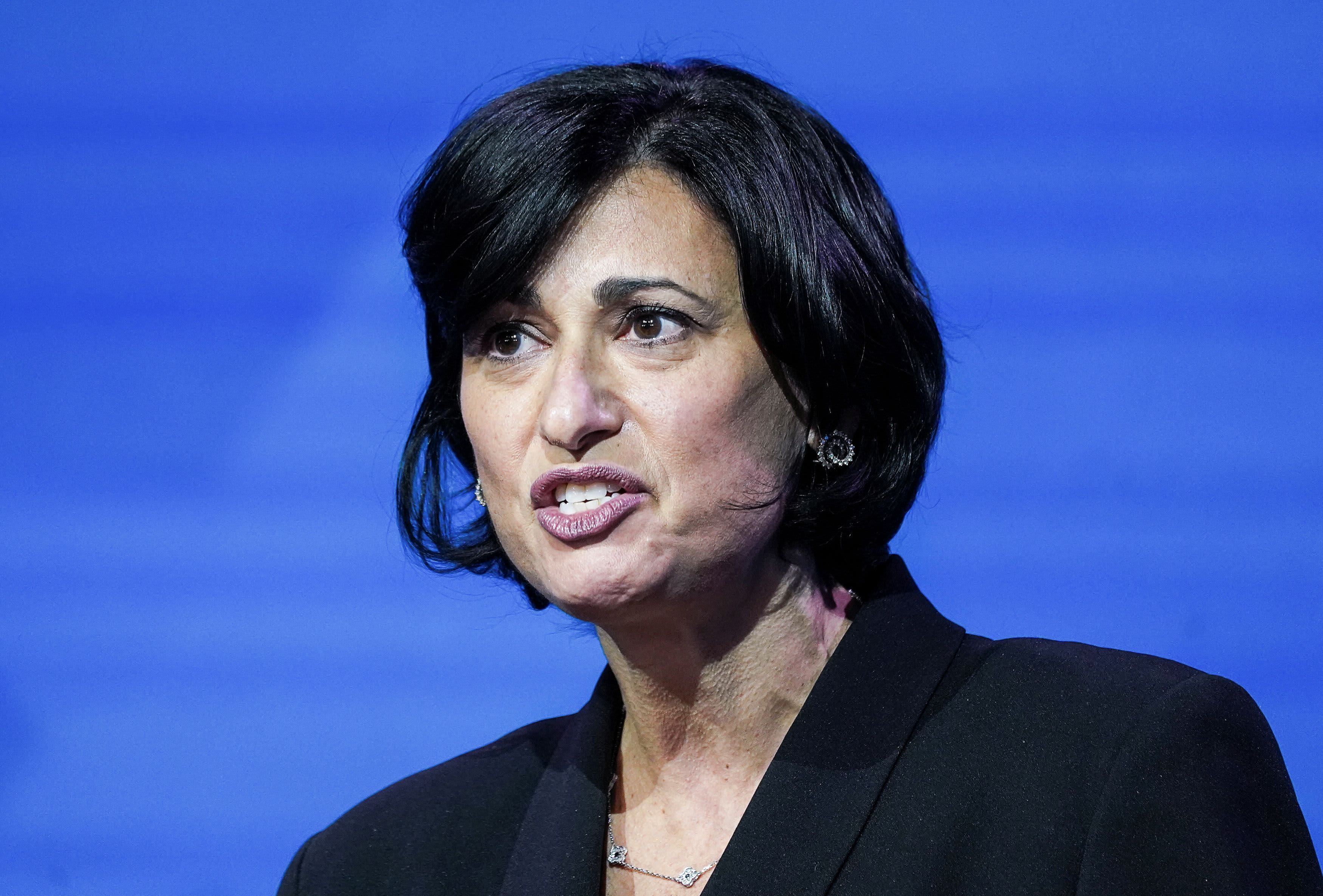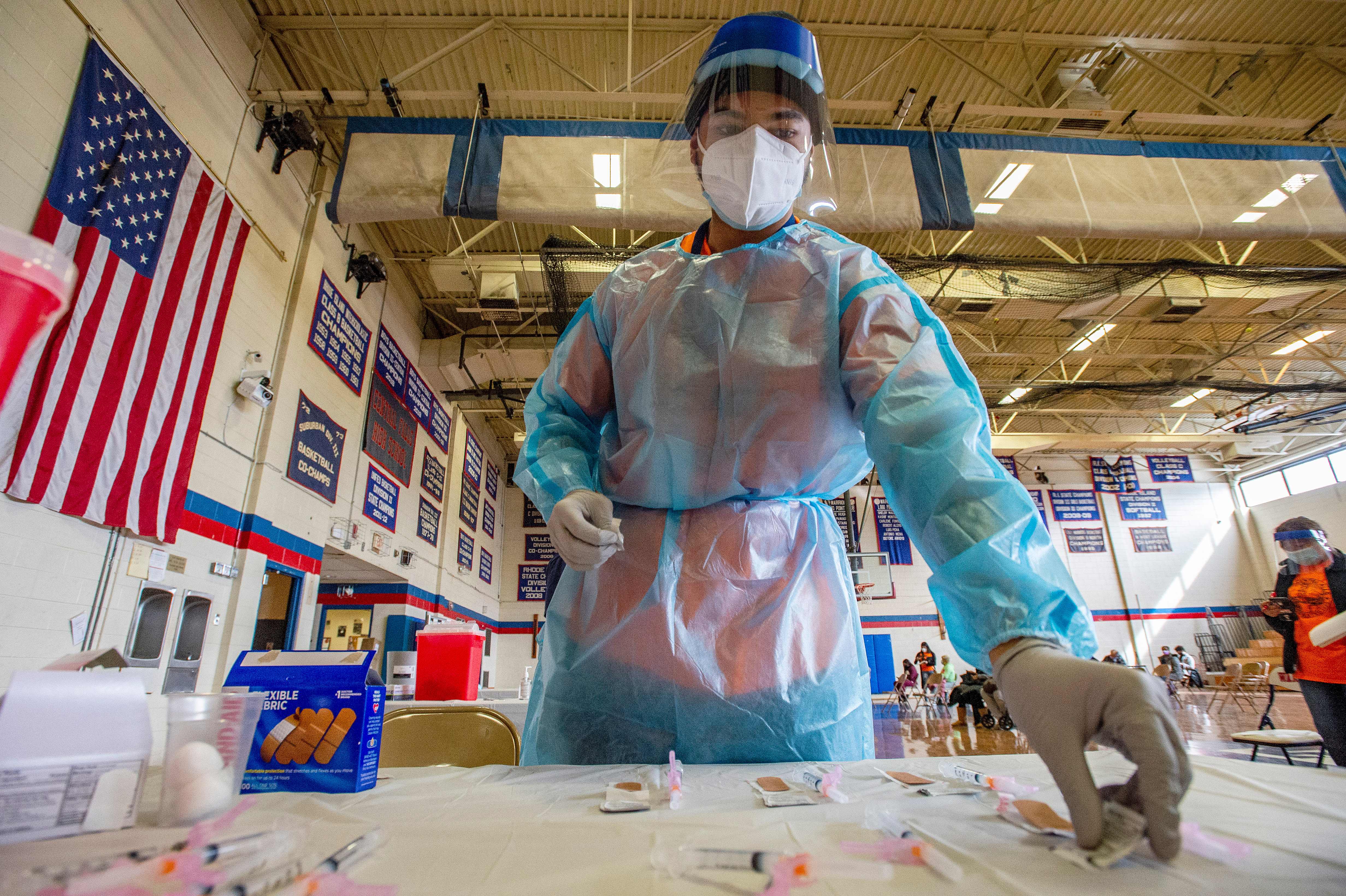As the region tries to get vaccination appointments back on track after winter weather-related disruptions, case rates and hospitalizations generally continue to improve — with a notable exception.
The University of Maryland has asked students who live on campus to “sequester in place” and only leave their rooms briefly for fresh air or to pick up food.
The university reports a spike in outbreaks of more than five cases and clusters of more than three in residence halls and sorority or fraternity houses.
Classes will also be moved online starting Monday. The enhanced measures will be in place for at least a week.
We're making it easier for you to find stories that matter with our new newsletter — The 4Front. Sign up here and get news that is important for you to your inbox.
Vaccine Outreach in Hyattsville
The Maryland Department of Health brought its mobile unit to Prince George's County as part of their GoVAX outreach campaign.
The truck has informational banners on it and broadcasts prevention and vaccination messages in Spanish and English.
Volunteers will also distribute flyers and provide free face masks, starting in the Hyattsville zip code 20783.
Dr. Mark Martin, the Deputy Director of the MDH Office of Minority Health and Health Disparities, said people would fan out in the community to lay the groundwork now to convince people to get shots once they are available.
“The Maryland Department of Health is working really hard, day and night, literally, to basically get these doses in arms,” he said. “And to push the messaging to really deal with this hesitancy issue, ok, which existed by the way before COVID.”
Walgreens to Expand Vaccinations in Virginia
Walgreens will begin sending vaccines to some of its Virginia locations next week.
Starting Thursday, Walgreens will get 480,000 weekly doses as part of the federal pharmacy program. It’s unclear exactly how many of those will go to Virginia or when appointments can be booked at Walgreens.com/ScheduleVaccine. Select stores in Maryland and West Virginia have already been giving out the vaccine.
What the Data Shows
D.C. counted 92 new coronavirus cases on Saturday and one more death.
Hospitalizations are in-line with phase two goals, at 84%, but have ticked up since reaching a recent low point of 191 last Saturday. On Saturday, 206 COVID-19 patients were in D.C.’s hospitals and 10.1% of all hospital patients had coronavirus — slightly higher than the benchmark goal.
Maryland diagnosed 763 new cases, and 20 more residents died. Testing has also declined over the past several weeks: About 25,450 were conducted on Friday, compared to more than 44,000 reported on Jan. 1.
Virginia saw the largest jumps, with 1,393 new cases and 91 deaths. The state also has the region’s highest rate of coronavirus tests coming back positive, 8.2%. That’s compared to 5.2% in D.C. and 4.17% in Maryland.
Vaccination Portals by County
As vaccinations in our region ramp up, here's a look at local portals residents can use to sign up for vaccination appointments or sign up to receive alerts.
- Washington, D.C. signups– vaccinate.dc.gov
- Maryland signups – www.marylandvax.org/ and covidvax.maryland.gov
- Virginia information – www.vdh.virginia.gov/covid-19-vaccine/
- Montgomery County – www.montgomerycountymd.gov/covid19/vaccine/
- Prince George's County – www.princegeorgescountymd.gov/3730/COVID-19-Vaccination
- Howard County – www.howardcountymd.gov/Departments/Health/MM-Alerts-and-Recalls/COVID-19-Vaccine
- Anne Arundel County – aahealth.org/covid-19-vaccine-faq/
- Fairfax County – www.fairfaxcounty.gov/health/novel-coronavirus/vaccine
- City of Alexandria – www.alexandriava.gov/health/info/default.aspx?id=119270
- Loudoun County – www.loudoun.gov/covid19vaccine
- Prince William County – coronavirus.pwcgov.org/vaccine-information/ & VDH
Local Coronavirus Headlines
- The number of coronavirus vaccine shots that have been given in Virginia is ticking up, but the state is still falling short of its desired inoculation rate because too few vaccines are coming in, Gov. Ralph Northam said.
- More people are eligible for vaccinations in D.C., including grocery store workers.
- NBC News is making finding information on when, how and where to obtain your coronavirus vaccination easier with its Plan Your Vaccine website.
- Medical schools across the country report a spike in applications, especially from students of color. At Georgetown University’s medical school, applications are up 24% overall and 40% from underrepresented minorities. The University of Maryland along with Howard University have also seen a rising number of applicants.
- The Maryland General Assembly has passed a pandemic relief measure that will deliver more than $1 billion in tax relief and economic stimulus for low-income families and small businesses.
- The first case of a COVID-19 variant from South Africa was diagnosed in Virginia, Gov. Ralph Northam said.
- Health officials confirmed Maryland's first case of COVID-19 caused by the new variant first identified in South Africa, then another two cases in Montgomery County residents.
- Many D.C. restaurant workers who already were coping with the safety hazards and financial impacts of the COVID-19 pandemic also are facing increased sexual harassment, a report from a labor organization says.
- Face masks are now required in all National Park Service buildings, and on land maintained by the Park Service when physical distancing is not possible, federal officials announced.
- Maryland Gov. Larry Hogan says school districts should resume in-person learning by March 1 or face legal action, which the state teacher's union says is a threat to educators.
Reopening Tracker
- Thousands of students returned to classrooms as schools reopened Tuesday in Frederick County, Maryland, Fairfax County and Loudoun County.
- Virginia Governor Ralph Northam directed all schools to offer in-person classes by March 15, saying the Centers for Disease Control and Prevention and other leaders say it's possible to reopen safely.
- The Fairfax County School Board voted unanimously to bring all students back in-person for hybrid learning by March 16.
- D.C. lifted its ban on indoor dining, but libraries and recreation centers are still closed.
- Virginia instituted a curfew and a stricter mask mandate.
- Maryland tightened restrictions on businesses, bars and restaurants.
- All Smithsonian museums and the National Zoo are closed because of rising COVID-19 cases.
- Courts throughout Maryland remain partially shut down due to the pandemic.
- Prince George's County tightened restrictions and required masks to be worn outdoors.
How to Stay Safe
Anyone can get COVID-19. Here are three simple ways the CDC says you can lower your risk:
- Wear a snug-fitting mask that covers your nose and mouth.
- Avoid being indoors with people who are not members of your household. The more people you are in contact with, the more likely you are to be exposed to COVID-19. If you are indoors with people you don’t live with, stay at least six feet apart and keep your mask on.
- Wash your hands often, especially after you have been in a public place.




